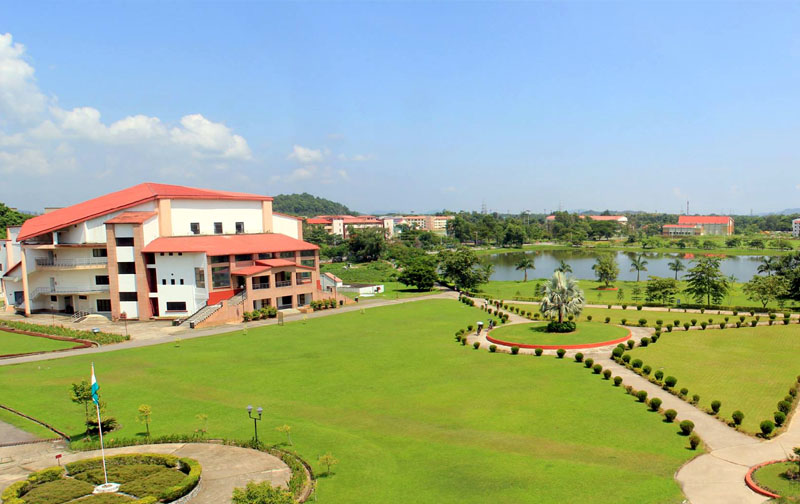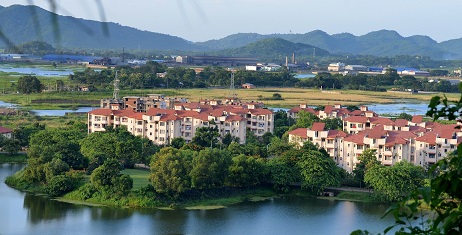Best Books to Read in 2023
Best Books to Read in 2023 Are you a bookworm or a bibliophile, if yes, then this is the ...
IIT Guwahati and IIM Bangalore researchers conducted a mathematical analysis that established a relationship between the carbon footprint of companies and the potential risks of investing in these firms.
As the world looks to move towards a sustainable future and economies everywhere try to reduce their carbon footprint, the future of companies that rely on excessive emissions of Greenhouse Gases (GHG) remains uncertain, say sources from IIM Bangalore and IIT Guwahati.

An extensive data analysis of over 200 of the largest listed companies in the American market was carried out by the researchers from IIM Bangalore and IIT Guwahati.
To assess the carbon footprint of the companies, direct GHG emissions of the companies and purchased GHG emissions (in power consumption or heat) were considered.
Who were the part of the research team? The Research Team included Professor Siddhartha Pratim Chakrabarty, Department of Mathematics and the Mehta Family School of Data Science and Artificial Intelligence, IIT Guwahati along with Professor Sankarshan Basu from the Department of Finance and Accounting, IIM Bangalore and Mr. Suryadeep to Nag, a BS-MS student from IISER Pune.
The findings of the research team from IIM Bangalore and IIT Guwahati were published in ‘arXiv,’ a curated research-sharing platform maintained by a team at Cornell University of USA.
The link to the paper can be found at ‘https://arxiv.org/abs/2107.06518’
Researchers from IIM Bangalore and IIT Guwahati found that most of these companies (71.6%) had shown a decrease in their carbon emissions in the 2016-2019 period.
Read More – easiest exams in India
 It was found that carbon footprint had a positive correlation with the size of the companies and the revenues, say sources from IIM Bangalore and IIT Guwahati.
It was found that carbon footprint had a positive correlation with the size of the companies and the revenues, say sources from IIM Bangalore and IIT Guwahati.
However, the correlation with expenses was found to be slightly less than that with revenue, which they attribute to the higher expenses of switching to renewable energy sources.
Professor Siddhartha Pratim Chakrabarty highlighted the important findings of this research by IIM Bangalore or IIT Guwahati.
‘On analyzing the data of annual stock returns, along with data of GHG emissions and other financial data (revenue, debt, and book value, among others), it was found that there exists a ‘carbon risk premium’ in the stock returns, which means in the short term, higher carbon emissions are found to be inflating the price of the stocks, said Professor Siddhartha.
Also read ‘IIT Jodhpur offers multidisciplinary BTech programmes in eight streams. Know what are they‘
Professor Siddhartha is with Department of Mathematics and Mehta Family School of Data Science and Artificial Intelligence at IIT Guwahati.
It was found that a higher carbon footprint gave higher returns to investors in the short term, he said.
If this happens, companies will begin losing profits, and in the case of extreme regulations, may even go into debt or bankruptcy, and the value of their shares may plummet, say sources from IIT Guwahati.
This could result in severe losses for investors, and the ensuing sell-offs could lead to other losses in the broader market.
While the estimation of the risk premium has been carried out multiple times in the last few years, there has not been much progress in quantifying future risks, until now.
 In their paper, the collaboration finds a mathematical relationship between the carbon risk premium and the value of the future risk, say researchers from IIT Guwahati and IIM Bangalore.
In their paper, the collaboration finds a mathematical relationship between the carbon risk premium and the value of the future risk, say researchers from IIT Guwahati and IIM Bangalore.
The researchers studied the risk for different scenarios for when the regulations or ‘carbon transition’ may happen and find a formula for the maximum exposure of each firm to the transition for different times in the future.
For one family of arrival processes (models for when the transition will happen), they find that the price of the average stock in their data could fall (at most) by 20.65% at the transition, if the transition is expected to happen in 10 years’ time from now, and 41.3% if the transition is expected to happen 20 years from now, say researchers from IIT Guwahati.
 The corresponding figures for most of polluting firms are 45.04% and 90.08% respectively.
The corresponding figures for most of polluting firms are 45.04% and 90.08% respectively.
The researchers also demonstrate the different scenarios in which investors could profit from the premium-risk tradeoff as well and show the cases in which it is more profitable to hold on to a stock for the premiums and those where it is more profitable to sell or short the shares.
S Vishnu Sharmaa now works with collegechalo.com in the news team. His work involves writing articles related to the education... (Full bio)

Best Books to Read in 2023 Are you a bookworm or a bibliophile, if yes, then this is the ...

In the exhilarating journey of 10 Proven Memorize Techniques for Students learning, memory is your trusty companion. Whether ...

Top 20 toughest exams in world is about exams in the world that required very hard work to ...

Top 20 toughest exams in India - Exams are the perhaps most toughest moments for any student. A ...

Top 20 Colleges of DU Getting admissions to the top 20 colleges of DU is a dream for every ...

Top 20 NITs of India - Amongst the 31 NITs in India, today, we are talking ...

Here are the Top 12 Artificial Intelligence in Mumbai. Artificial intelligence (AI) refers to the simulation of human ...

As you stand on the Best Science Courses after 12th academic journey, the realm of science beckons, offering ...
Millions of students have entrusted CollegeChalo to facilitate their seamless and smooth admission process to their dream colleges and universities. With CollegeChalo, you can gain a competitive edge by easily accessing exam and course details to stay ahead of the admission journey. What are you waiting for?
Search your dream college